Conrad Altmann has been involved in the coffee industry for over ten years, working his way up the chain as a barista, manager and eventually roaster, finally finding his permanent role in graphic design. With his wife Violeta, they run Altmannhaus, taking care of graphic solutions for coffee and tech companies since 2007. Today he gives you his view of our industry and why we need a multi-roaster cafe businesses.
Community is paramount in the coffee industry. It is the reason that early cafes were so integral to social change in England and France in the nineteenth century. Art flourished because artists would gather at their favorite cafes and share ideas. Despite the quality of the coffee that people drank back then, there is no denying that community is what made those cafes thrive.
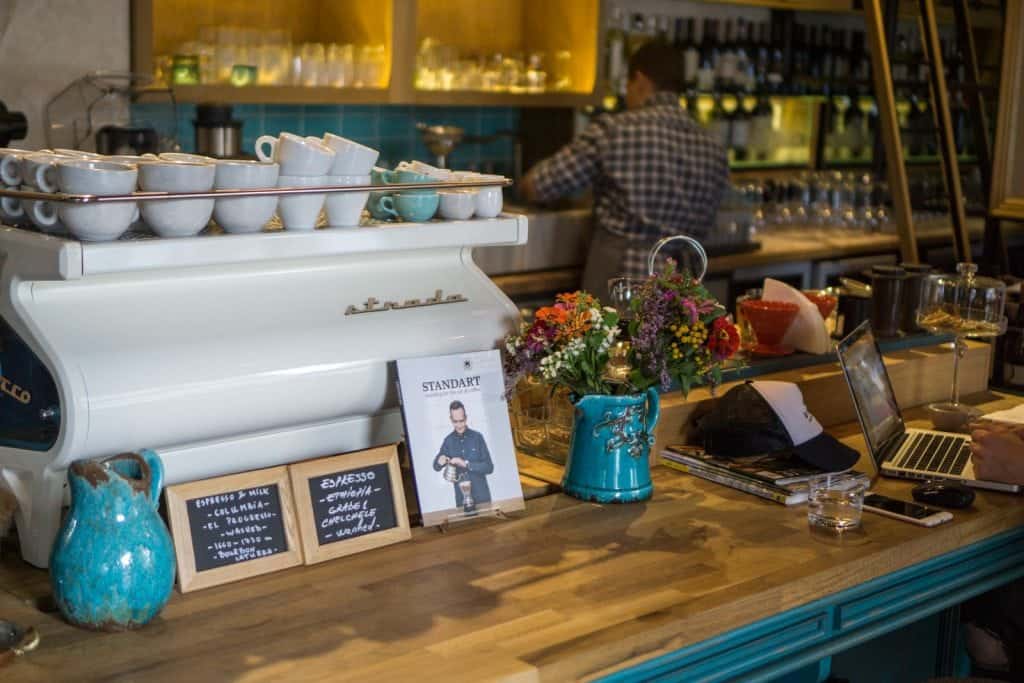
Fast-forward to today, to the reality of every cafe wanting to foster a community of their own. Be it returning customers who bring their friends every day, or commuters who start the day with a morning ritual of queuing up for their favorite drink. However, without a meaningful network of healthy rivalry between those cafes with strong customer base, many grow stagnant and their quality drops, thus alienating customers. Their biggest endeavour becomes harmful to their business.
I’ve worked in many cafes as a barista, manager and roaster, and my experience of growth while working in each one was drastically affected by the level of knowledge of the “outside-cafe” scene. When I worked for Starbucks, the modern coffee movement many call “third wave” was just kicking off.
I knew that I liked coffee then, and I hungered for more knowledge and techniques that differed from what I was taught. I moved to Peet’s Coffee and Tea, and likewise, they had a diehard customer base, but the baristas were convinced that their coffee was the be-all and end-all, and they refused to explore further.
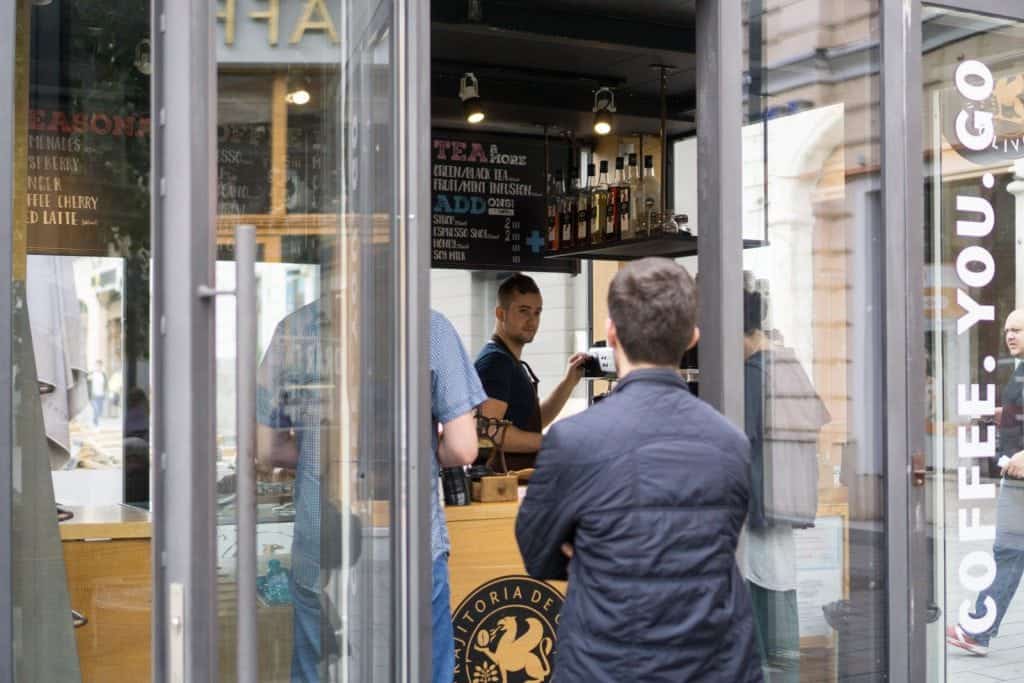
Only when I moved into a small cafe as an apprentice roaster, did I begin to hear about these other cafes who were “doing it differently” but not poorly. My interest was piqued and I began exploring these different venues and styles. Eventually, I moved on to one of those cafes and everything opened up. I heard about things like Baristas Guild and Roasters Guild.
I couldn’t believe the intense familial fervor that was emanating from cafes who were supposed to be cut-throat rivals! There were latte art throw downs, AeroPress competitions and barista exchange programs.
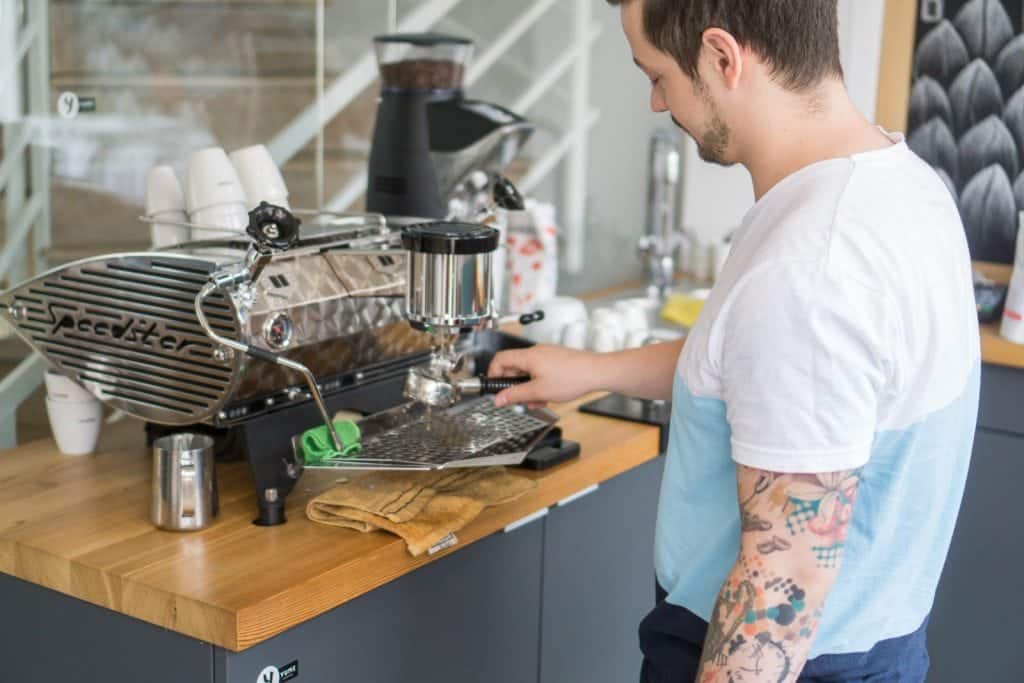
I soaked it all up and learned more about coffee’s history, industry and family than ever in the years before. It was only after I had moved into more of a support role for the industry that I realized: “This feeling you get when you walk into a cafe half-a-world away and strike up a friendship with the first barista you meet isn’t only natural, but imperative to the survival of modern coffeeshops and roasters.”
In a nutshell, if a cafe does not encourage its employees to expand their knowledge base by communing with rival cafes and baristas, then it will become stale, and it will lose its most important asset, the barista. Community between cafes — whatever the coffee they sell — is imperative to the survival and evolution of the coffee professionals that they employ.
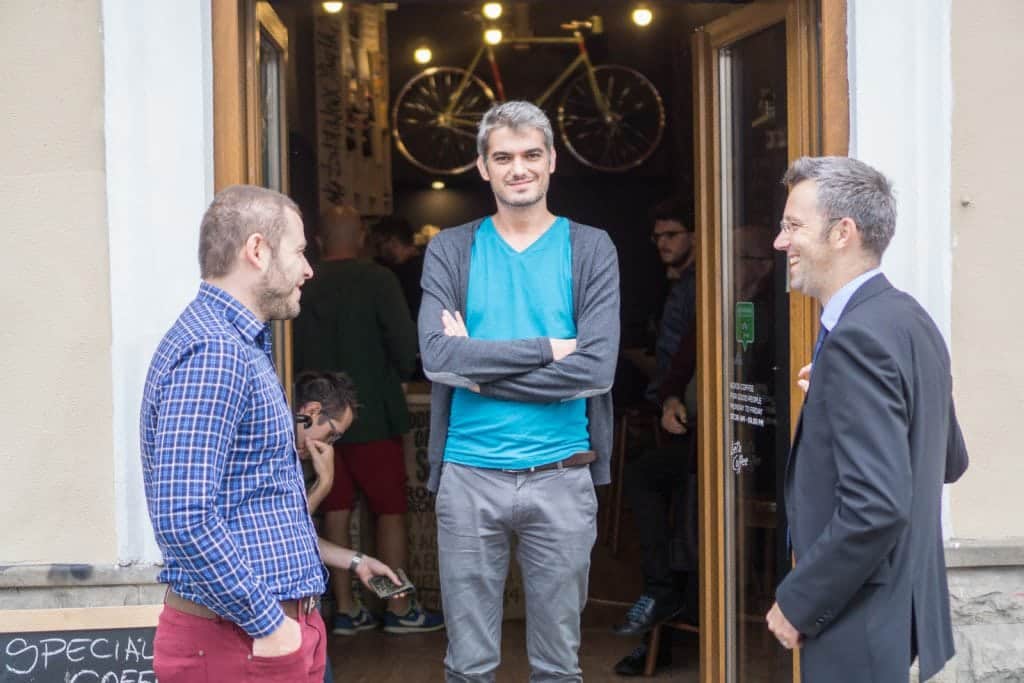
This point is driven home all the harder by the communities who foster multiple different roasters. Roasters have no need to be roasting in the same vicinity or city, but they do need to be offered by cafes in the same physical area, or their coffee won’t be represented to both baristas and customers. This is, in my opinion, a fundamental reason why many of the larger cities in the world are churning out such high quality coffee professionals.
Unparalleled in passion and knowledge, these professionals are versed in multiple styles of coffee preparation, and will feel comfortable discussing any coffee. They don’t turn their noses up at a roaster using less-than-specialty grade greens, on the contrary, they will honestly evaluate their offerings based on their experiences from many different areas.
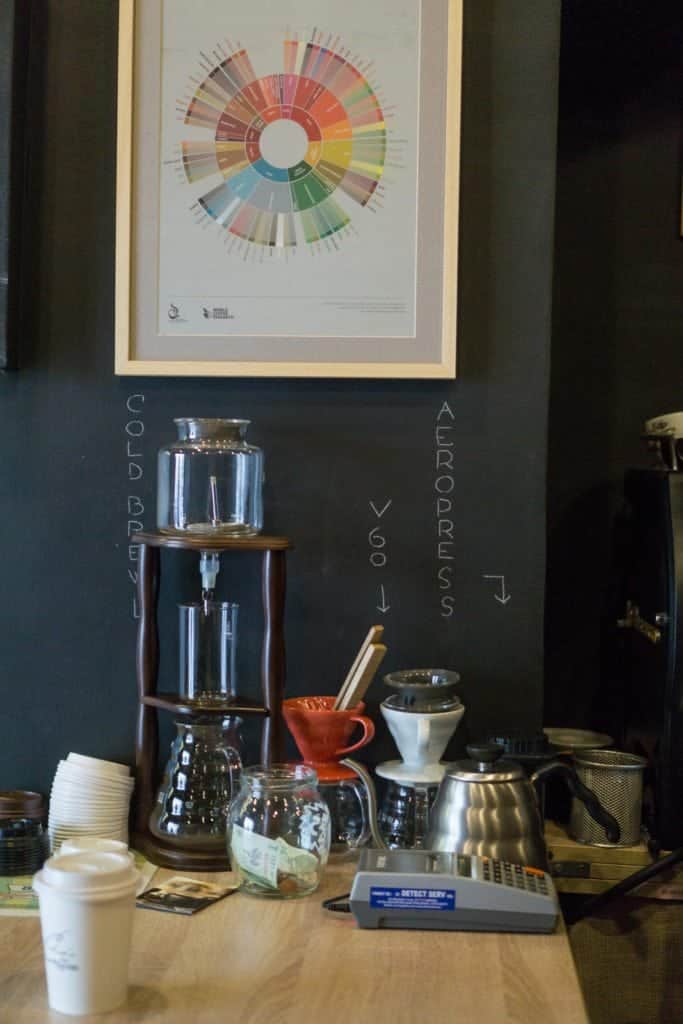
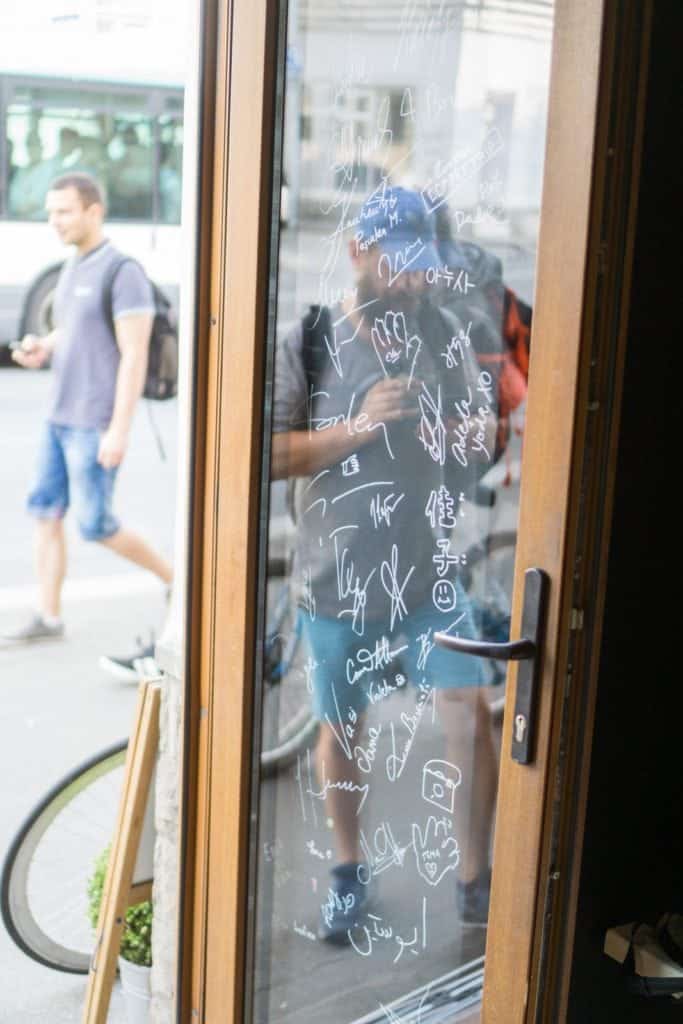
As a roaster, barista or daily drinker, being familiar with multiple roasters and keeping up a healthy competition vibe will either greatly improve the appreciation of your own coffee or the coffee you are using, or it will convince you to branch out in style, re-evaluate your technique and tastes. The [friendly] rivalry that this encourages only serves to grow the industry.
Delia Avram, Head Barista at Yume Coffee Roasters in Cluj-Napoca, Romania says, “People will often ask us where to go in town to have a good coffee, and we like to direct them to cafes that serve our coffee, but we also tell them about other cafes which serve other roasters’ coffee, otherwise, our community wouldn’t grow, and our customers would have a hard time developing their palates.”
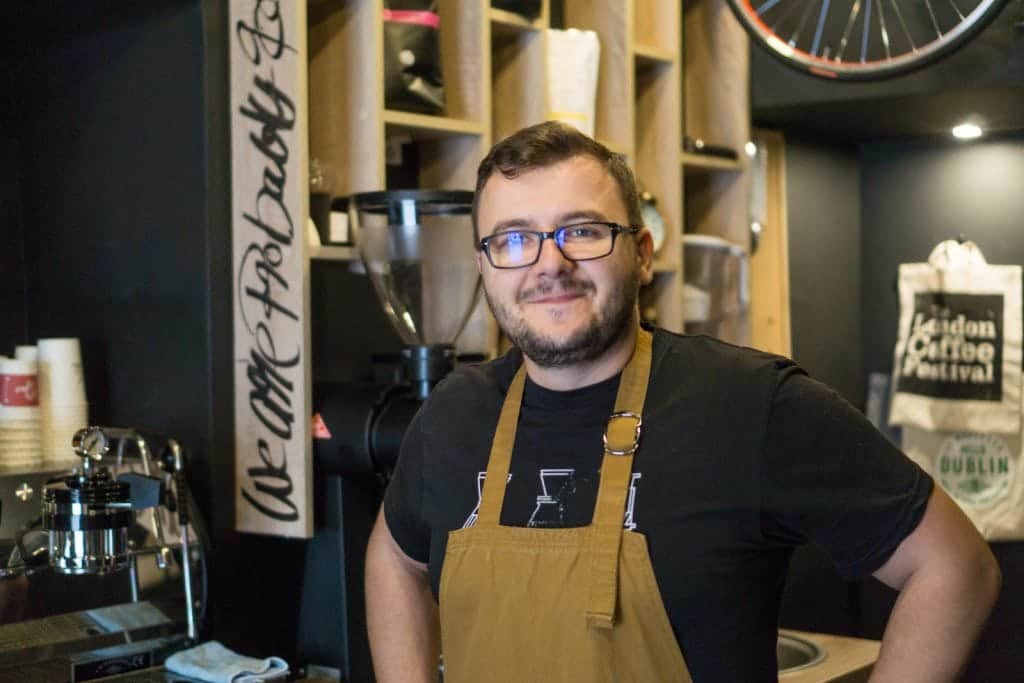
I’ve been party to shared ingredients, recipes and profiles all through my experience in the industry, and every time that would happen I’d strive to change something of my practices to excel and improve my game. Offering your customers diverse options within their market will only help to broaden their palates and, ultimately, your business as well. If you lose business to another roaster, then you are probably not serving your customer base as effectively as you could.
More often than not, when we travel to a new city to experience its cafe culture, we are greeted by baristas who feel like long lost cousins, and are often offered a map, a website or an app that plots out all-or-many of the specialty shops in their city. They say — blatantly sometimes — “check out this cafe, they serve coffee from this other roaster, but they really make a kick-ass AeroPress”, or something to that effect.
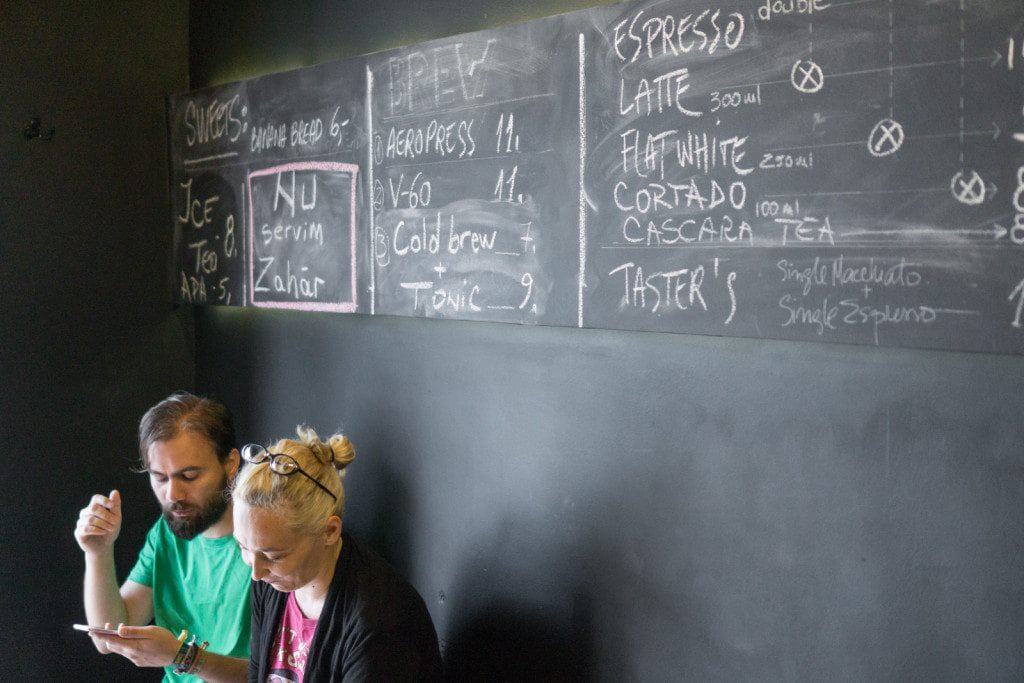
It’s the close-knit community which thrives in a friendly competition that offers the best to their employees and customers. It is this fact that keeps so many of us in the industry. There is no other one like it – or at least not as caffeinated!
Coming from Cluj, we have become to like several cafes that serve us great coffees in a friendly environment. One of the favorite cafes for coffee professionals is Let’s Coffee on Strada Ferdinand in Cluj. A small space, yet always rich in community building. We meet new interesting people in this shop every time we visit. Their weekly rotating menu of roasters from within Romania is a great way to educate their customers with every serving.
Through Let’s Coffee we have discovered new roasters on Romania’s coffee scene, which inevitably led to our ordering more. At Let’s Coffee, Vasi, the owner and barista, never fails to ask you how you liked the coffee he brewed for you.
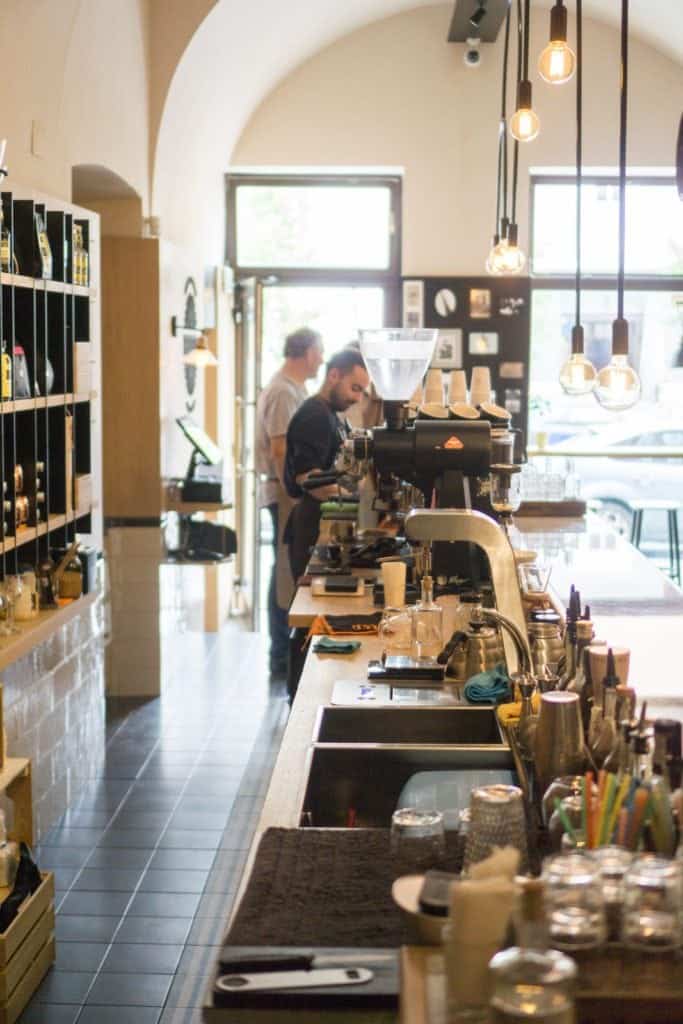
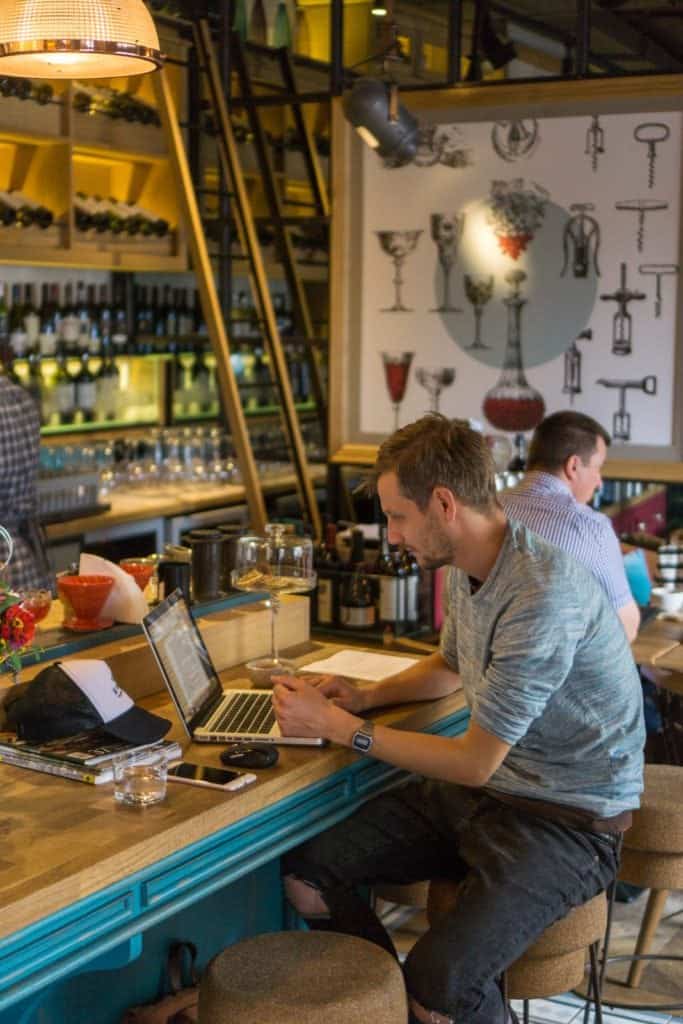
Another cafe that serves a cup of knowledge and coffee professionalism is Olivo Caffe‘s Kiosk in the city center. You will often find other cafes’ baristas sipping on a coffee here on their way to work. The small space of this cafe allows for a friendly exchange and a more personal connection between the customer and the barista. A nerdy coffee chat between customers is almost a necessity here!
“I often have a coffee at various cafes around town and I recognize baristas from any of the handful of cafes here in Cluj. The cafes don’t necessarily serve our coffee, but they enjoy contrasting different styles and tastes, not to mention having a friendly chat with their competition,” confirmed Marius Nica, Head Roaster at Prajitoria Olivo.
Make sure you indulge in the chit chat with the community when visiting Romania!

